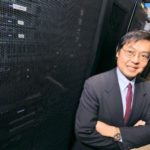MCLEAN, Va. — Silicon Valley may be the technology center of the high-tech world, but 3,000 miles to the east, the nation’s capital has something that Silicon Valley can aspire to: a more diverse tech workforce.
Blacks hold about 17% and women hold 31% of tech-related jobs in the DMV, a metropolitan area that covers the District of Columbia, Maryland and Virginia.
Those are among the highest percentages of tech diversity in the nation, according to Census data, and could serve as a model for Silicon Valley as it strives to improve the diversity of its workforce, which is overwhelmingly white, Asian and male.
From Apple to Google, Silicon Valley companies are looking to include more women and minorities as they compete in a global marketplace.
The DMV’s edge: a more diverse population.
African Americans make up half of the population in the nation’s capital and 25% in the metro region.
And women are in the majority here, too, where they account for more than half of Washington’s residents and 51% in the region.
There’s a tradition here of women and minorities in leadership, in part because the federal government and the military have long been held to equal opportunity standards. Blacks and women have also been visible, thanks to local and national politics.
“People come to D.C. … and they see a diverse community — men, women, black, white, young, old — and they see that our culture is ‘give, then get’ and they want to be a part of it,” says Jordan Lloyd Bookey, co-founder of children’s app and book curation company Zoobean.
Women and minorities still face many of the same challenges that they do in Silicon Valley. To foster inclusion, the tech start-up community has agreed not to participate in industry events that lack diversity, says Donna Harris, co-founder and co-CEO of 1776, a tech incubator based in downtown Washington, within two blocks of K Street, the city’s lobbying center.
“Our tech community is not only paying attention to the numbers, the leaders in the tech community make it a priority to fix the ratios,” Harris says.
Other DMV employment trends also parallel Silicon Valley: Asians hold a high proportion of the tech jobs (19%) and Hispanics a lower portion (4%), compared with their percentage of the populace.
Angel investor and tech CEO Tien Wong thinks that some business owners do see the benefits of a diverse workforce. His Herndon, Va.-based company, Appnetic, consists of at least 55% women and more than 40% people of color.
“When we interview, I am consciously looking for people from different backgrounds and experiences,” Wong says. “I don’t want everyone thinking the same. It’s not just politically correct, I’ve gotten value out of having a diverse team.” DMV angel investor and tech business owner Tien Wong, CEO of Appnetic in Herndon, Va. (Photo: Courtesy of Tien Wong)
Silicon Valley venture capital firm Kapor Capital has already invested in four start-ups in the greater D.C. region — and more on the East Coast — and has opened an office in Baltimore to accelerate their prospecting in the region.
“You are more likely to find black tech entrepreneurs in the greater D.C. area because there are 10 times more black tech professionals here than in Silicon Valley,” says Ben Jealous, a Kapor Capital partner and former president and CEO of the NAACP.
Other hotbeds of diverse entrepreneurship include Atlanta, Chicago, New York, Las Vegas and Austin, he says.
Beyond Silicon Valley he is finding more start-ups focused “on building solutions for urgent problems facing the unemployed, the underemployed, the working poor and working families,” Jealous says. “We are committed to helping get those ideas to the marketplace and in front of a wider set of investors.”
Noble Ackerson, CEO of wearable fitness app company LynxFit, says successful local entrepreneurs could do a better job of paying it forward. (Photo: LynxFit)
Successful local entrepreneurs could do a better job of paying it forward, says Noble Ackerson, CEO of wearable fitness app company LynxFit.
That is something the region can learn from Silicon Valley, where there was “almost a proactive need to help,” says Ackerson, who spent the past summer in San Francisco working on his business plan with an accelerator.
Bookey and her Zoobean co-founder, husband Felix Brandon Lloyd, moved back to Washington because its tech industry is “a reflection of the city, more-educated and forward-moving,” says Lloyd, who grew up in the city.
Their company supports programs to encourage girls and women in computer skills. “It’s a long-term pipeline issue,” Bookey says. “It takes time to make the face of tech change.


 Mike Snider”
Mike Snider”